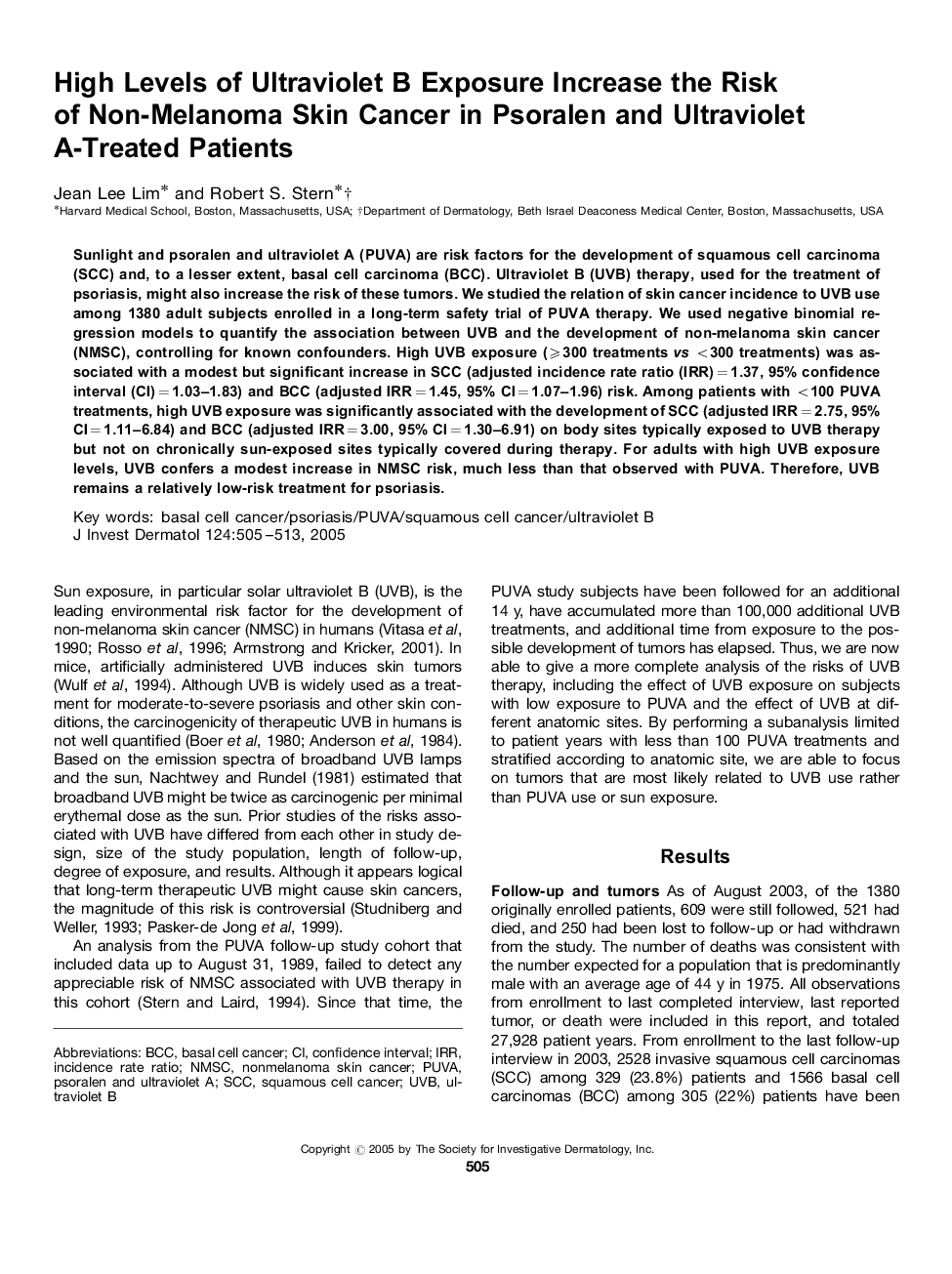| Article ID | Journal | Published Year | Pages | File Type |
|---|---|---|---|---|
| 9230305 | Journal of Investigative Dermatology | 2005 | 9 Pages |
Abstract
Sunlight and psoralen and ultraviolet A (PUVA) are risk factors for the development of squamous cell carcinoma (SCC) and, to a lesser extent, basal cell carcinoma (BCC). Ultraviolet B (UVB) therapy, used for the treatment of psoriasis, might also increase the risk of these tumors. We studied the relation of skin cancer incidence to UVB use among 1380 adult subjects enrolled in a long-term safety trial of PUVA therapy. We used negative binomial regression models to quantify the association between UVB and the development of non-melanoma skin cancer (NMSC), controlling for known confounders. High UVB exposure (â¥300 treatments vs <300 treatments) was associated with a modest but significant increase in SCC (adjusted incidence rate ratio (IRR)=1.37, 95% confidence interval (CI)=1.03-1.83) and BCC (adjusted IRR=1.45, 95% CI=1.07-1.96) risk. Among patients with <100 PUVA treatments, high UVB exposure was significantly associated with the development of SCC (adjusted IRR=2.75, 95% CI=1.11-6.84) and BCC (adjusted IRR=3.00, 95% CI=1.30-6.91) on body sites typically exposed to UVB therapy but not on chronically sun-exposed sites typically covered during therapy. For adults with high UVB exposure levels, UVB confers a modest increase in NMSC risk, much less than that observed with PUVA. Therefore, UVB remains a relatively low-risk treatment for psoriasis.
Related Topics
Health Sciences
Medicine and Dentistry
Dermatology
Authors
Jean Lee Lim, Robert S. Stern,
